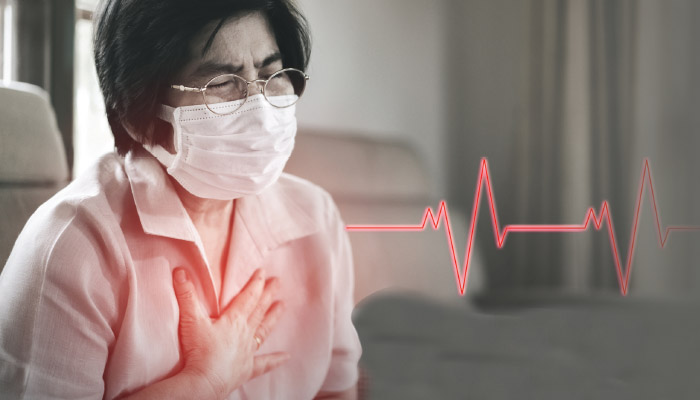
Muscat: A new scientific study conducted by a team of researchers in Oman has revealed that COVID-19 patients with existing cardiovascular troubles are four times more likely to die of the disease than those without.
Furthermore, it was discovered that COVID-19 patients with elevated heart enzyme levels – one of the most common characteristics of those with heart-related issues – are six times more likely to die from complications from the virus.
The study – conducted by a team of 13 doctors and three medical research students – examined Omani and expat patients aged between 18 and 80 years, admitted with severe COVID-19 symptoms to ICUs in three hospitals in the country: Al Nahdha Hospital, The Royal Hospital, and Sultan Qaboos University Hospital.
These patients were observed from the time they entered the ICU, until they were released or, died because of complications from the virus.
“For this research, we chose clinicians from three areas of specialisation – cardiovascular health, infectious diseases, and intensive care,” revealed Dr Fahad Al Kindi, a senior consultant doctor at Sultan Qaboos University Hospital. “Among the results, we found that COVID-19 patients with a high heart enzyme rate of more than 100 nanograms per litre in their blood had a death rate six times higher than someone with lower enzyme values.”
“This is among the most important results we have arrived at, because now when hospitals measure the heart enzyme rates of their patients with COVID-19, we know the medical conditions their patients are likely to face, and can therefore provide them the required attention,” he added.
“We also found that the death rate among those suffering from heart and arterial complications is four times greater than those who don’t have a history of such issues.”
“Doctors have warned, since the beginning of the pandemic, that cardiovascular patients must take caution and make sure they follow the preventive measures associated with COVID-19,” he explained. “We found that the rate of acute infection is far higher among men – 83 per cent – than it is among women, at 17 per cent.”
The reason for the higher infection rate among men is owing to three possibilities: a larger proportion of men in the country’s population, the average age among men being greater than women, and increased occurrence of cardiovascular conditions among men.
During the course of his research, Dr Fahad Al Kindi also issued clarification over rumours of patients in intensive care experiencing oxygen loss after being put on ventilators to help them breathe.
“This is not true: rather their use is necessary because in such patients, the disease has reached a very critical stage, owing to a lack of oxygen due to acute pneumonia, leading to a high chance of death,” he explained.
“65 per cent of people who recovered from COVID-19 were put on ventilators… this indicates that rumours of increased chances of people dying when put on ventilators that have been posted on social media are false. The artificial respirator is used to help them breathe so that their lungs can rest, and rebuild their tissues.
“Some COVID patients suffer from a lack of oxygen without realising it,” said Al Kindi. “The level of oxygen in the blood depends on how much is carried by the red blood cells from the lungs to the rest of the body. This is a good indicator of the standard of his health. Oxygen levels can be measured through arterial blood gases (ABG) tests, which is the most effective way of doing so.”
The study was conducted in two phases: the first from the beginning of March to the end of May, and the second phase ran from June to August.
“During the first phase of the study, we saw that the percentage of non-Omanis with severe cases of COVID-19 stood at 60 per cent, compared to 40 per cent for Omanis, but in the second phase, these numbers changed, and the percentage of Omanis admitted to the ICU rose to 54 per cent, compared to 46 percent for non-Omanis,” said Al Kindi.
“We studied the severity of COVID-19 for patients who had a history of heart disease, and conditions such as the hardening of the arteries of the heart, which is also known as cardiomyopathy,” he added.
“We studied whether COVID-19 disease is more severe to cardiovascular patients, compared to those who haven’t had cardio issues previously. We also looked at the death rate between those who have a medical history of cardiovascular disease and those who don’t,” he explained.
“We have also conducted a study to see whether the coronavirus affects the heart and the arteries, or whether it impacts only the lung, throat and trachea, which leads to breathing problems.”